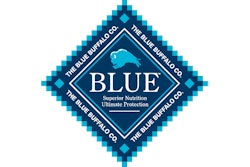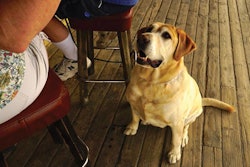
A dog owner filed a class action lawsuit claiming that consumption of Blue Buffalo dog food caused her pet’s obesity. In legal documents, Shannon Walton’s lawyers claimed her seven-year-old Labrador-Beagle mix, Tucker, “gained significant weight and now requires medical attention for canine obesity.” Veterinarians also diagnosed the dog with diabetes, which Walton pays to treat. Tucker ate BLUE Wilderness Rocky Mountain Recipe (Red Meat flavor) and BLUE Wilderness Rocky Mountain Recipe (Bison flavor).
Legal argument about Blue Buffalo dog food carbohydrates
The packages of both variety feature a wolf, as Walton’s lawyers noted. They based their argument on Blue Buffalo’s marketing and labeling of its dog foods as healthy and inspired by grey wolves’ natural diets. They listed marketing terms, “[i]nspired by the diet of wolves,” “ancestors in the wild” and “Nature’s Evolutionary Diet.” Lawyers filed their complaint with the U.S. District Court in New York.
“Wild wolves consume little or no dietary carbohydrate and they do not experience high rates of chronic diseases such as obesity and cancer. In fact, these diseases are essentially non-existent in wolf populations,…” wrote the lawyers. Blue Buffalo’s “claims are deceptive because their Blue Wilderness products all contain high levels of dietary carbohydrates, which are neither healthy for dogs nor a meaningful part of the diet of grey wolves.”
The lawyers claimed that a small bowl of Blue Wilderness chicken recipe contains more carbohydrates than a wild grey wolf is likely to consume in a lifetime. Since the marketing implies that the dog food is similar to a wolf’s natural diet, the lawyers argued that consumers may assume it was likewise low in carbohydrates.
Articles on pets' digestion of carbohydrates:
Dogs and wolves have different digestive biology. Dogs and their gut microbiomes can digest carbohydrates more easily than a wolf.
Dogs likely evolved to eat cooked meat and carbohydrates
During their evolution, dogs took advantage of a rich new food source, human garbage, including cooked meat and plant matter, said one scientist.
Scientists study how cats digest carbohydrates
Scientists compile the results of research on how cats’ digest carbs, along with what this means for cat food manufacturers.
Potato, oat, wheat advised for mid-size, adult dog kibble
Food meant for medium-size breed dogs six months and older should be made with more potato, oat and wheat flours rather than other sources, said scientists.
Dogs can digest carbs, but may learn to prefer meat
A preference for meat may not be instinctual in puppies.
Your dog is not a wolf! (Pet food companies, take note)
Many recent pet food trends play on the belief that a dog is not different from a wolf and should be fed like one. Is this concept supported by science?
















